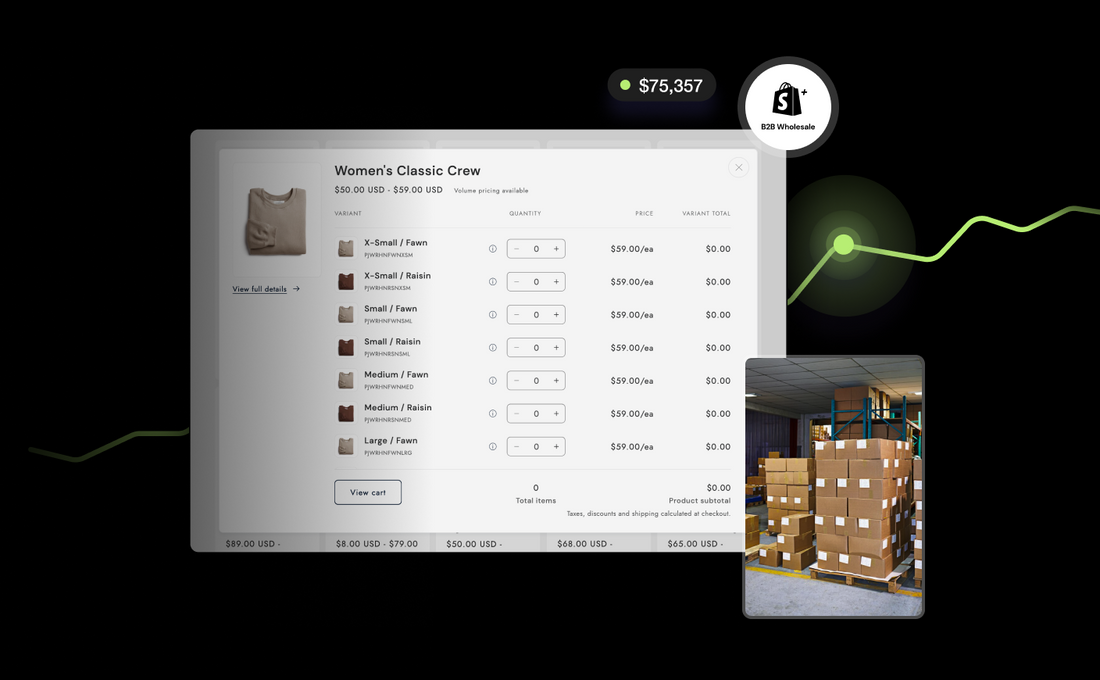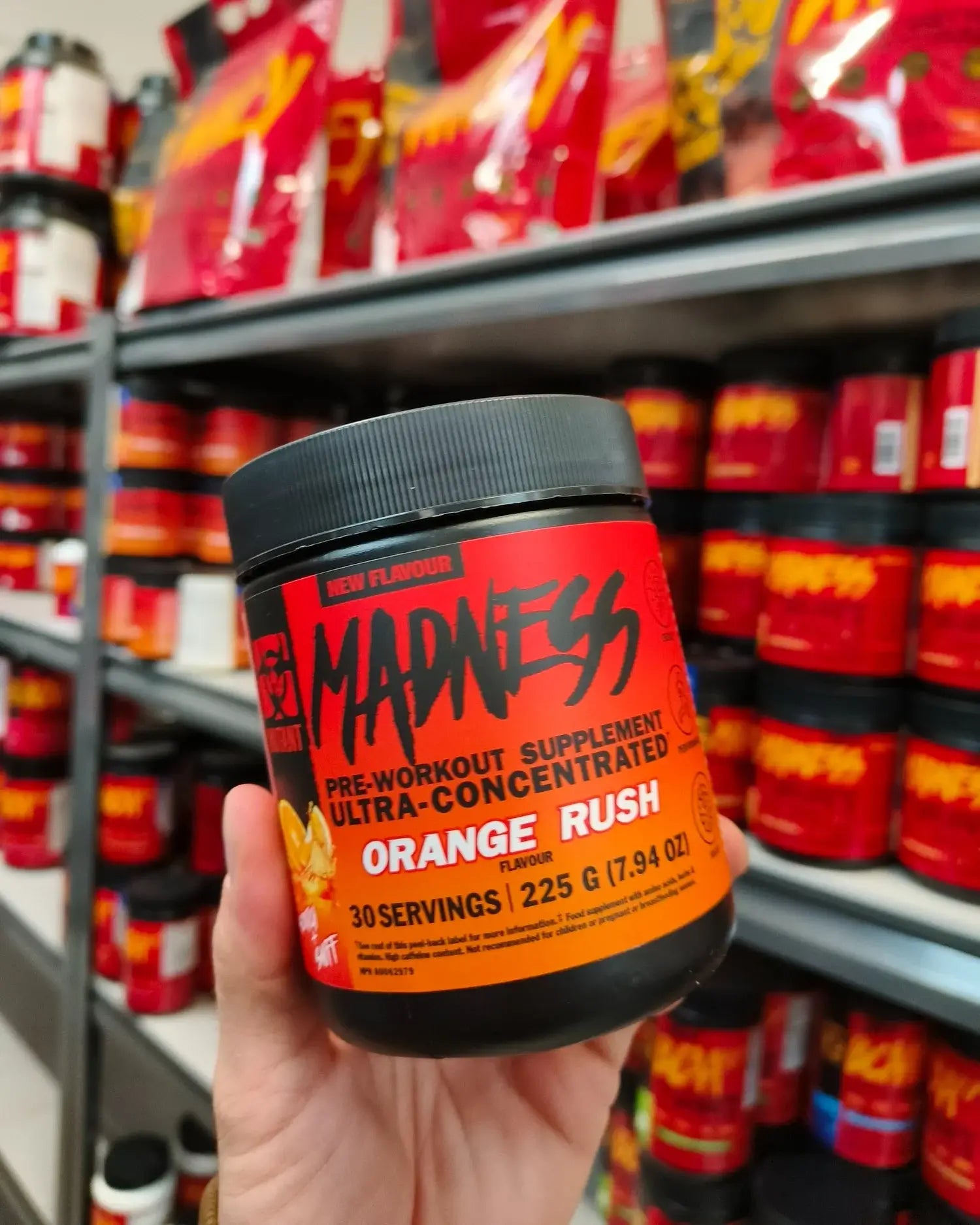5 Best Shopify B2B Services Every Brand Needs In 2025
Shopify B2B
shopify B2B ecommerce
Shopify B2B store

B2B ecommerce is not evolving quietly. It is expanding at a pace few predicted. With the global B2B market expected to reach 20.9 trillion dollars by 2027 (source: dckap), businesses are facing a new generation of buyers who demand more from every transaction.
In the United States alone, 71% of B2B buyers are Millennials or Gen Z.
These digital natives expect the same smooth experience they enjoy on platforms like Amazon. Bulk orders and price lists are no longer enough. Convenience, speed, and personalization now define the B2B buying journey.
Shopify has emerged as a key platform to cater to these changing demands. What started as a DTC solution has grown into a powerful tool for B2B commerce. With features like Shopify Plus, brands can manage wholesale and retail operations on a single platform while delivering a professional experience to every buyer.
In this blog, we will explore 5 essential Shopify B2B solutions every brand needs in 2025 to create lasting relationships with their buyers.
The 5 Best Shopify B2B Services Your Brand Needs in 2025
If you want to run your B2B business smoothly on ecommerce, these best Shopify b2b services are where you start.
#1 Custom Price Lists and Tiered Pricing for B2B Customers
One of the biggest reasons B2B buyers stay loyal is knowing they are getting the right price for their business. In fact, 87% of B2B buyers say transparent pricing influences their purchasing decisions (source: businessvirtualexpo).
This is where Shopify’s custom price lists and tiered pricing come into action.
With Shopify Plus, merchants can set personalized pricing for different customers based on factors like account type, purchase history, or even location. Whether you want to offer VIP rates to long-term partners or special prices for distributors, custom price lists help you control who sees what price and why.
For stores not on Plus, apps like B2B & Wholesale Solution by BSS Commerce make it possible to offer similar pricing flexibility. Tiered pricing is especially useful when you want to reward bulk buyers. For example, giving a 10% discount on orders over 50 units or 15% on orders over 100 units can push customers to buy more and increase your average order value.
Example: Brooklinen
A home-essentials brand, it started as a DTC business but now caters to hospitality clients through bulk and B2B orders. They use tiered pricing strategies for their hotel and property clients, offering better rates on large orders while maintaining direct to consumer prices on their main store.
Also read: Best Shopify and Shopify plus agency in 2025
#2 Offering Net Payment Terms to Build Stronger B2B Relationships
In B2B commerce, payment flexibility often makes the difference between winning a customer or losing them. While retail buyers pay upfront, B2B buyers frequently expect payment terms that allow them to buy now and pay later, a common practice in wholesale trade.
With Shopify, offering net payment terms like Net 15, Net 30, or Net 60 is easier than most merchants realize. Here’s how you can make it work:
-
Draft Orders allow you to create custom invoices with specific payment terms, making it ideal for merchants on standard Shopify plans. You can negotiate directly with buyers and issue custom invoices whenever needed.
-
For merchants on Shopify Plus, native B2B features let you set automated net terms at the account level. Buyers can place orders and check out without immediate payment, following the agreed payment timeline.
To further simplify credit management, apps like B2B Credit by Growmax offer credit checks, automate payment reminders, and help sellers manage outstanding invoices. And all this is done without constant manual tracking.
Example: Faire
It is a B2B marketplace that connects independent retailers with brands. Though not exclusively on Shopify, Faire offers net payment terms like Net 60 to their buyers, giving them the flexibility to stock up on inventory before payment is due. This model has helped Faire scale rapidly by earning the trust of small businesses that rely on flexible terms.
#3 Company Accounts with Multiple Staff Logins and Permissions
This is probably one of the best Shopify B2B services available because B2B buying involves more than one person. It somehow includes procurement teams, finance managers, and decision makers, all playing a crucial role in placing and approving orders.
Managing this process through a single buyer account can create confusion and slow things down.
With Shopify’s company accounts for B2B, you can give your customers the flexibility to manage orders as a team. This feature is available natively on Shopify Plus and can also be enabled on other plans using apps like SparkLayer B2B and Wholesale.
Key advantages of using company accounts include:
-
Multiple user access within a single company account, each with their own login
-
Role-based permissions to control who can browse products, place orders, or manage payments
-
Centralized order management, so all orders placed by the company are visible in one account dashboard
So why does this matter for your buyers?
-
It makes purchasing easier for large organizations with multiple staff involved in procurement
-
It enhances account security by giving access only to authorized users
-
Also, it improves efficiency by allowing team members to collaborate on orders without overlapping efforts
Example: CDW
A global technology supplier, they provide procurement teams with access to company accounts. It gives different departments the ability to place orders under the same account while managing approvals internally. This system has helped clients reduce order approval time by 30%, streamlining both internal workflows and supplier relationships (source: globaldata)
Also read: Why B2B Ecommerce needs a D2C mindset in 2025
#4 Self-Serve B2B Portals for Reordering, PO Management, and Order History
Today’s B2B buyers want control over their purchasing experience. They do not want to call a sales rep every time they need to reorder or check an order status. In fact, 75% of B2B buyers prefer a self-guided online experience where they can manage everything on their own (source: gartner)
With self-serve B2B portals on Shopify, you can give your buyers access to a personalized dashboard where they can:
-
Reorder products with just a few clicks based on past purchases
-
View complete order history, including invoices and payment details
-
Manage purchase orders (POs) directly from their account
-
Track real-time order status and delivery updates
These portals are built-in for Shopify Plus users. For merchants on standard plans, it can be set up with apps like B2B and Wholesale Solution by BSS Commerce.
So why these self-serve portals make sense for your business:
-
It reduces the workload on your sales and support teams by letting buyers handle repeat tasks on their own
-
Provides 24/7 access to account details, improving buyer satisfaction
-
It makes reordering faster and more convenient, which helps increase repeat purchases
Example: Sysco
Being a leading food distributor, the brand’s online portal allows restaurant clients to reorder supplies in minutes, manage their accounts, and track deliveries. All this is done without needing to contact a sales rep. This self-serve system has helped Sysco save time on manual order processing and strengthened relationships with their clients.
#5 Wholesale Only Storefronts and B2B Access Control for a Secure Buying Experience
Not every product or price should be visible to the public. For many wholesale businesses, keeping sensitive pricing and exclusive products restricted to approved buyers is a must. In fact, 75% of wholesalers say that having a secure, login-gated store is critical to protecting their B2B relationships.
With Shopify’s access control options, you can create a buying experience custom only for your B2B customers. Here is how merchants are making it work:
-
Login-gated storefronts that restrict access to approved wholesale buyers only
-
Dedicated wholesale stores with unique URLs, separate from your direct to consumer website
-
Access control apps like Locksmith or B2B Login and Lock Access for merchants not on Shopify Plus
Why this matters for your B2B strategy:
-
It keeps wholesale pricing and exclusive products hidden from public view
-
Allows for controlled onboarding of B2B clients through invite-only access
-
It gives your brand the flexibility to separate B2B and B2C shopping experiences
Example: Darche
An Australian outdoor gear brand, it shifted its wholesale operations to shopify. By using a dedicated B2B portal with login-gated access, the brand enabled its wholesale customers to place orders online instead of relying on emails or phone calls. This move helped them simplify order processing, protect their wholesale pricing, and offer a better experience to their trade customers (source: shopifycasestudy)
Also read: Why brands are choosing blended Shopify B2B stores in 2025
To Sum Up
B2B commerce has moved far beyond traditional catalogs and manual processes. Shopify has evolved to meet these demands, giving brands the power to grow wholesale operations without losing the personal touch buyers value.
As the B2B environment keeps shifting, the brands that succeed will be the ones who embrace technology, simplify their processes, and focus on delivering real value to their customers.
Frequently Asked Questions
Can I manage both DTC and B2B in one Shopify store?
Yes, but you cannot do that with standard Shopify plans. With Shopify Plus, you can offer customized pricing, payment terms, and access controls for B2B buyers while running your direct-to-consumer operations on the same platform. This lets you handle wholesale and retail under one roof, without creating separate stores.
Do I need Shopify Plus for B2B ecommerce?
No, you don’t always need Shopify Plus for B2B ecommerce. While Shopify Plus offers advanced B2B features like custom pricing, company accounts, and automated net terms, you can still run a B2B store on standard Shopify plans using third-party apps. However, Plus is recommended if you want native tools, better scalability, and a better B2B experience.
Is Shopify suitable for large B2B companies?
Yes, Shopify, especially Shopify Plus, is suitable for large B2B companies. It offers advanced features like bulk ordering, custom pricing, company accounts, and net payment terms, all designed for high-volume transactions.
How does offering custom price lists help keep B2B buyers coming back?
Custom price lists give buyers the special pricing and volume discounts they expect, helping you build stronger relationships and trust over time.
Is it possible to offer net payment terms on Shopify without a Plus plan?
Yes, you can use Draft Orders or apps like B2B Credit on standard Shopify plans to offer flexible payment terms, though Shopify Plus offers built-in features for this.
Why do company accounts with multiple staff logins make sense for B2B sales?
They let teams manage orders together, assigning roles and permissions for better control, security, and a smoother buying process.
What makes self-serve B2B portals a must for today’s buyers?
They let buyers handle reorders, purchase orders, and account details on their own, which saves your team time and gives buyers the convenience they want.















